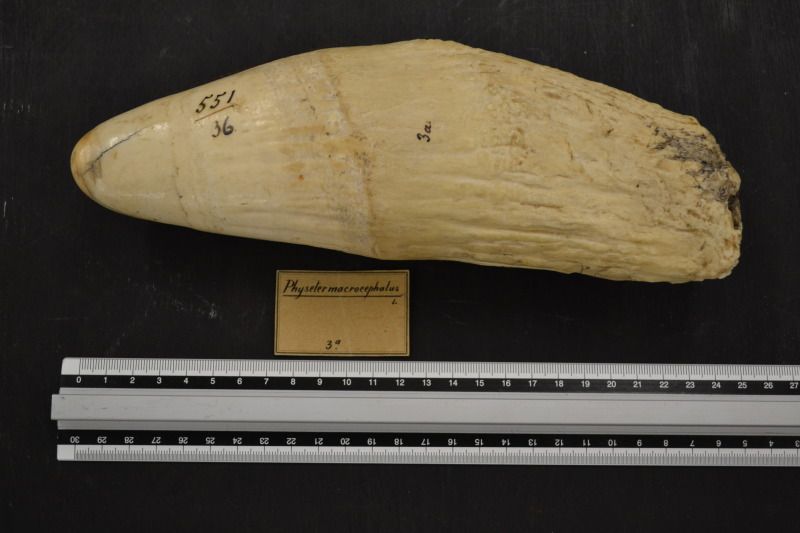
 |
|
|
|
|
#1 |
|
Member
Join Date: Dec 2004
Location: Greenville, NC
Posts: 1,854
|
This is a recent acquistion for me and rather an oddball. At first glance it appears to be a N. Sumatran sikin panjang with a variant hilt that seems to combine two hulu styles. However, based on the very precise definition and description of a sikin panjang by Zonneveld this sword would not technically classify as one because of its blade.
The blade has an almost yataghan form with a scabbard clearly made for it. The sword fits oddly into the scabbard at the top, but patina indicates it has fit in that position for a very long time, and again, the scabbard is clearly made for the down curving blade. Is there a more precise terminology for this sword??? Also, can anyone translate the inscription on the back of the scabbard? Thanks in advance for any input. |
|
|

|
|
|
#2 |
|
Member
Join Date: Jun 2006
Location: ca, usa
Posts: 92
|
Nice blade - sorry, but I don't know anything about them.
I was looking at how the blade seats in scabbard and thought you might try to see if something got wedged down into the tip of the scabbard (run some sturdy copper wire down as a probe or similar). I've also had good luck with applying gentle torque in different directions when sheathing to find the true fit (warpage issues). hope it helps |
|
|

|
|
|
#3 |
|
EAAF Staff
Join Date: Dec 2004
Location: Louisville, KY
Posts: 7,363
|
Nice puppy Charles and an interesting variation on the sikim theme, especially the ivory hilt and the scabbard throat. Is the ferrule silver?
|
|
|

|
|
|
#4 |
|
Member
Join Date: Dec 2004
Location: Sweden
Posts: 1,637
|
A very interesting and unique sikin - congratulations Charles!
I am amazed of all multicultural blades you always find. To me it has several features of an Aceh variation of the Tumbok Lada (enclosed a reference picture). Aceh did have a lot of contact with Turkey but I don't know anything about yataghans myself to comment the resemblence. On the hilt it looks like the regular hulu tumpang beunteung to me? I haven't seen an ivory hilt on a sikin before. Michael |
|
|

|
|
|
#5 |
|
Member
Join Date: Dec 2004
Location: Greenville, NC
Posts: 1,854
|
Thanks for the input.
Battara...regarding the metal rings, I believe the widest one is swassa(maybe heavy with copper), and the narrow "crown" is a low grade of gold. Neither was tarnished when purchased, and had bot been polished. VVV...regarding the hilt form, it seemed to me that the extensions were not long enough or didn't both have the bulbous tip to be a hulu tumpang exclusively, so I though perhaps it was a variant of the hulu tumpang and hulu rumpung. Perhaps you can see what I am saying if you combine the two in your imagination. But, you may very well be right and this may just be a slight variant on the hulu tumpang. |
|
|

|
|
|
#6 | |
|
Member
Join Date: Nov 2008
Posts: 318
|
Very nice sikin.
My guess is hulu tumpang but limited due to the material. So only a practical variation on the theme. Most ivory I have seen on sikins (mainly on photo's to be honest) is with hulu rumpang. My guess still is that this is because otherwise you need a really big piece of ivory. Anyway real nice piece, Erik Quote:
|
|
|
|

|
|
|
#7 | |
|
Member
Join Date: Apr 2005
Posts: 3,255
|
Thanks Charles!
I do remember this thread but have no idea why I didn't commented earlier. How long is the blade (without the integral bolster)? Quote:
Regards, Kai |
|
|
|

|
|
|
#8 |
|
Member
Join Date: Jul 2012
Location: Mother North
Posts: 189
|
I found the picture I took of aforementioned tooth in my office archives. Turns out it's even larger than I remembered - as you can see it clocks in at a whopping 25 cm! That's more than twice the size of the avarage. Note the tip wear.
The Zoological Museum of Copenhagen have other sperm whale teeth, which are also to be considered gigantic, but this one takes the prize! Given that the Museum has one of the world's very largest colelctions of cetacean material, there's reason to think that there aren't a lot of competitors around. As can be seen from the low collection no., the tooth was probably included in the earliy years of the history of the Museum, which goes back to the beginning of the 1600's. Hope you enjoy it, - Thor 
|
|
|

|
|
|
#9 |
|
Member
Join Date: Nov 2006
Location: The Netherlands
Posts: 2,238
|
Charles,
Did you ever get a translation of the scabbard inscription ? Best regards, Willem |
|
|

|
|
|
#10 | |
|
Member
Join Date: Dec 2004
Location: Greenville, NC
Posts: 1,854
|
Quote:
|
|
|
|

|
|
|
#11 |
|
Member
Join Date: Nov 2011
Location: Oxford (UK)
Posts: 96
|
A friend of mine has had a look at the inscription; it it evidently, at least in part, an attempt at an ownership inscription; she reports as follows:
This is so poorly written it is almost undecipherable: Allah [or: inilah] s-k-w t-w w l-a d-y-r p-n-g-j t-ng-k-w y-w [k-a]-d-y-n Inilah (this is) Teuku ... Kadir ... Teungku Yu.... ..... |
|
|

|
 |
| Thread Tools | Search this Thread |
| Display Modes | |
|
|